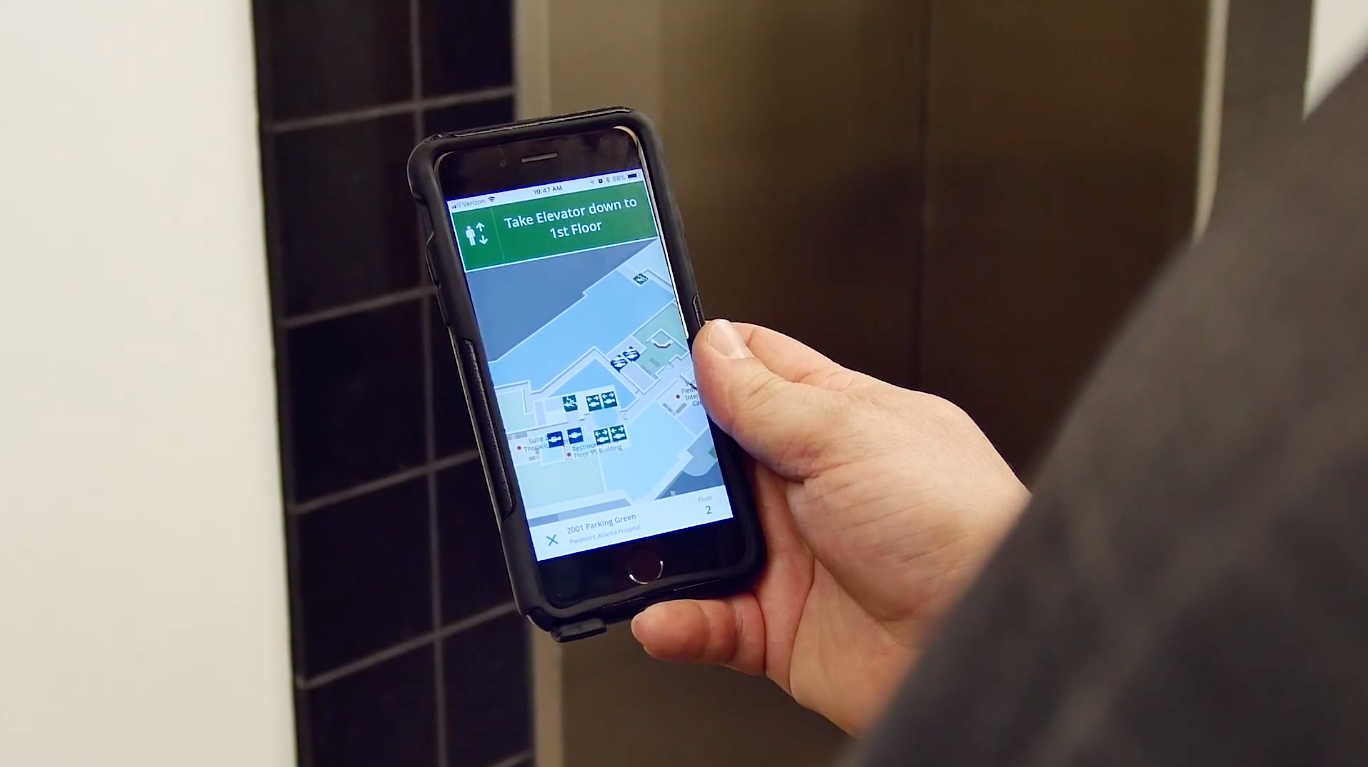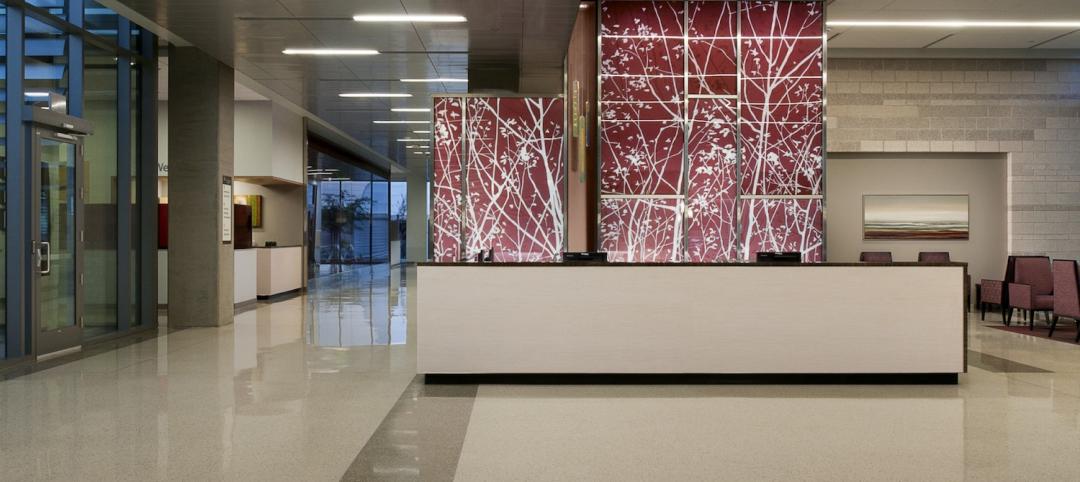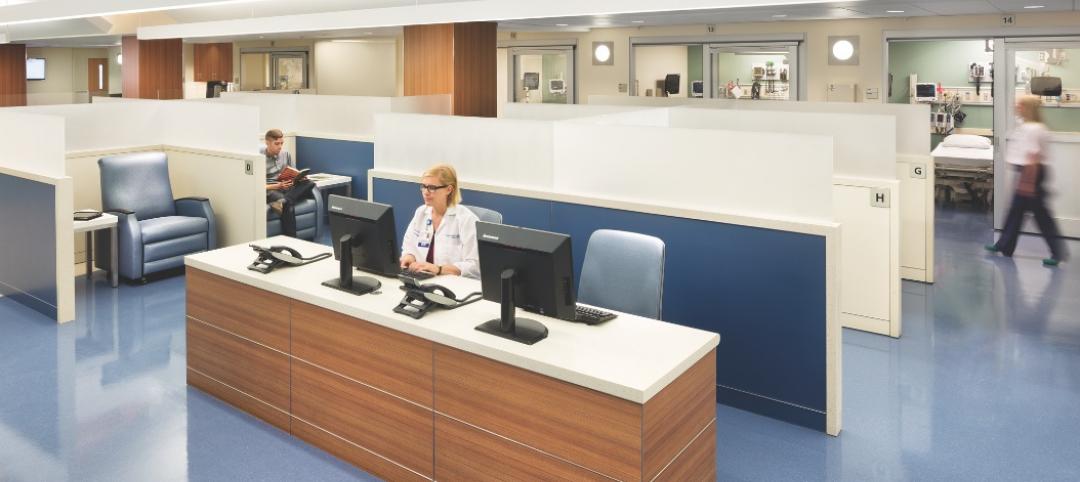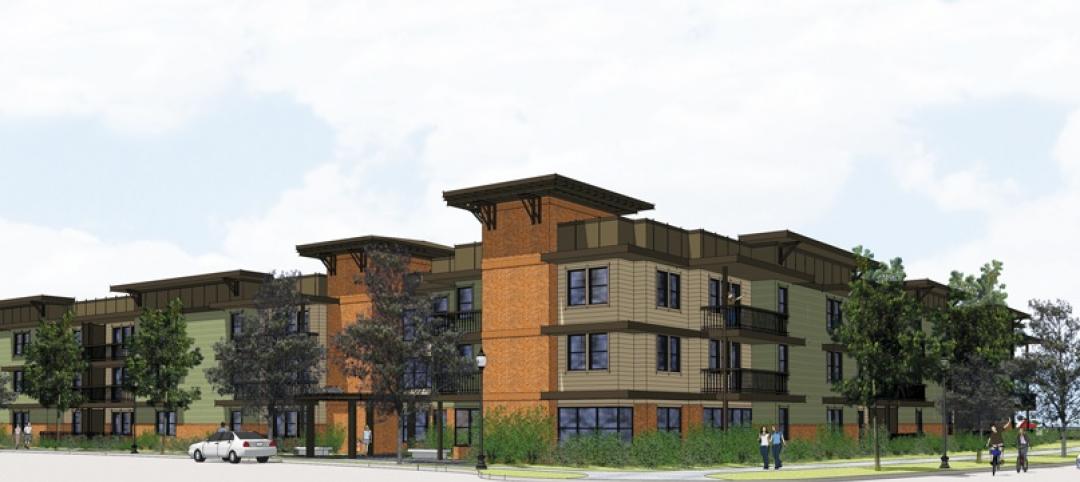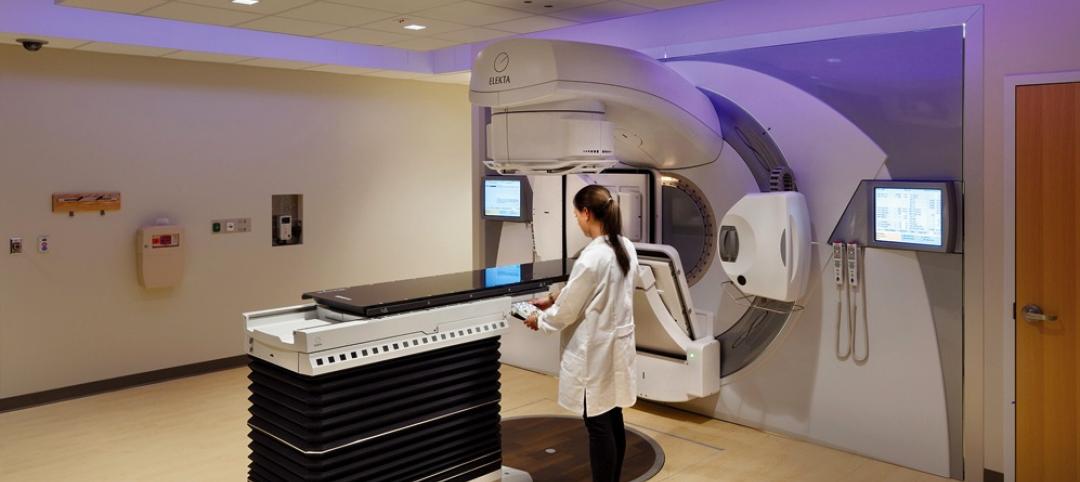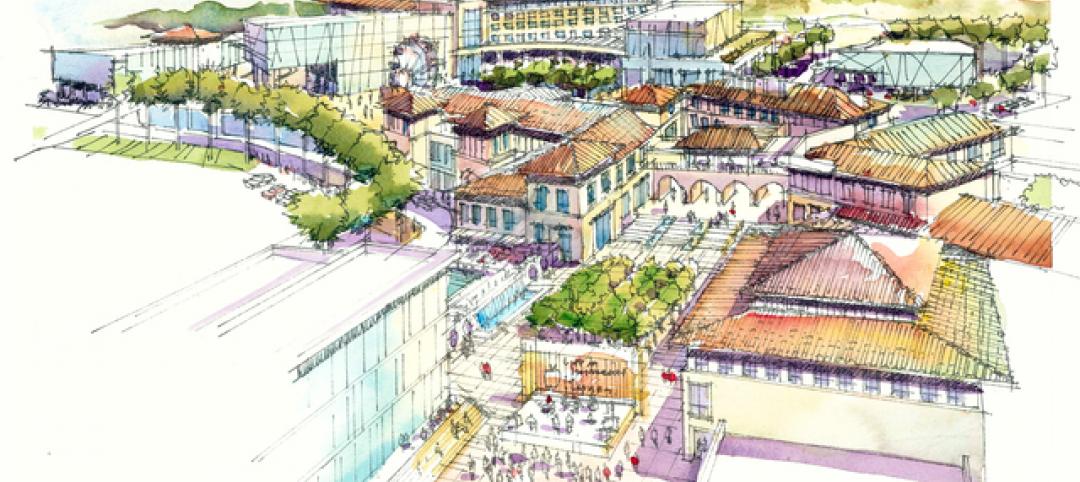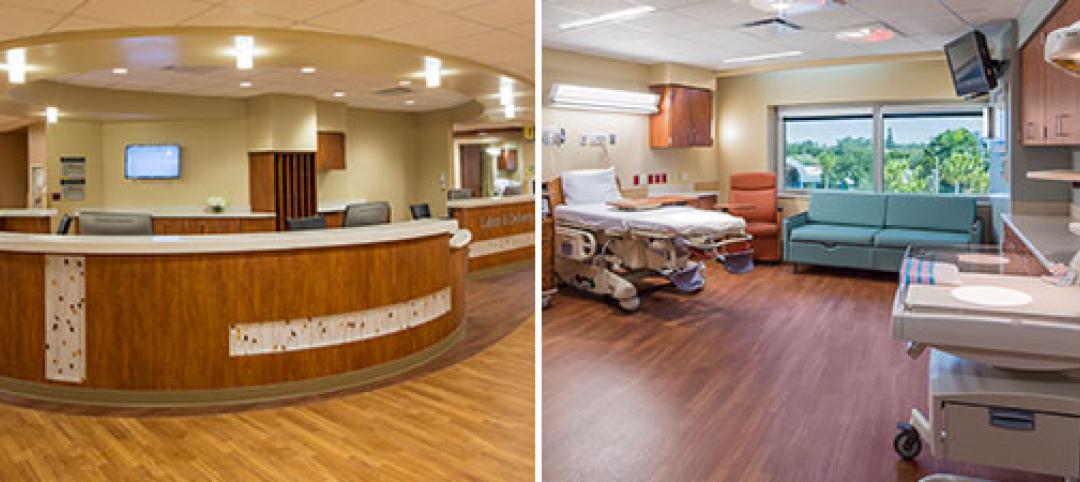Anyone who has had to take a trip to the hospital, maybe to visit a sick friend or meet a new niece or nephew, knows trying to navigate a large, complex medical campus can quickly become overwhelming. Between locked staff-only areas, hallway after hallway that look exactly the same, and myriad entrances and parking garages, your hospital trip can become a frustrating experience.
University Health System, located in San Antonio, Texas, has partnered with Gozio Health to remedy this situation by creating a mobile wayfinding platform for its campus. Gozio used a robot, cleverly named Magellan, to roam the hospital to capture data and create detailed maps of the building spaces and campus.
As soon as visitors step out of their car in the parking garage, the University Health System mobile wayfinding platform provides turn-by-turn, Blue Dot navigation through the entire campus.
Innovations in healthcare wayfinding
The tool allows patients, visitors, and hospital staff to use their smartphone to efficiently navigate to any location on campus, from the maternity ward to the emergency room, to a specific doctor’s office, even the nearest vending machine. It also helps users avoid any “Seinfeld”-esque “lost in the garage” issues; the tool marks the individual spot where the user parked.
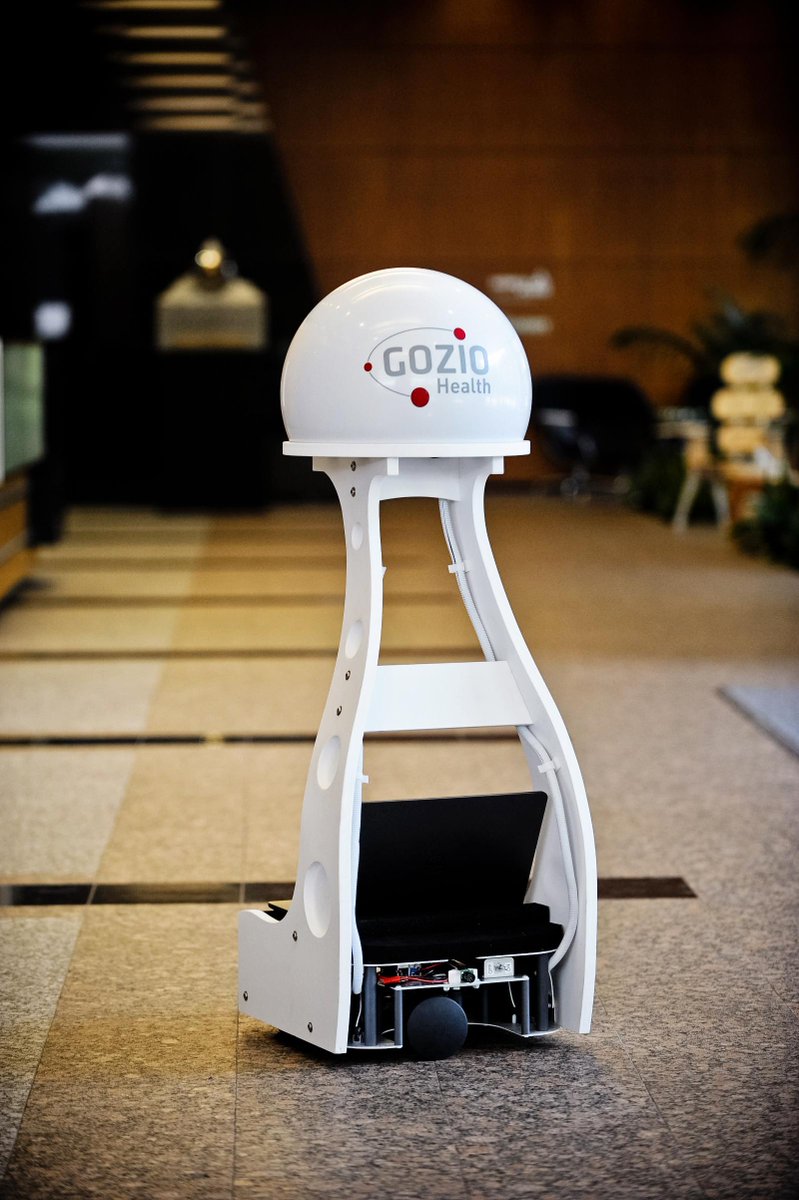 Gozio's robot, Magellan.
Gozio's robot, Magellan.
In addition to wayfinding functions, the app gives patients and visitors immediate access to physician directories, electronic medical records, and the ability to view hospital amenities, an important feature according to Joshua Titus, CEO and Founder of Gozio Health.
“For hospitals to remain competitive, they must provide patients with a digital platform that features location-based services, appointment scheduling, and access to their patient portal from their smartphone,” said Titus.
Based on statistics from Gozio, 85% of users that install the wayfinding app to navigate to a destination within a hospital will return to the app to use the other features such as for scheduling appointments and viewing their medical records.
The University Health System mobile wayfinding platform also includes access to 28 satellite clinics and urgent care centers, covering more than three million square feet of navigation.
Related Stories
| Oct 30, 2014
CannonDesign releases guide for specifying flooring in healthcare settings
The new report, "Flooring Applications in Healthcare Settings," compares and contrasts different flooring types in the context of parameters such as health and safety impact, design and operational issues, environmental considerations, economics, and product options.
| Oct 30, 2014
Perkins Eastman and Lee, Burkhart, Liu to merge practices
The merger will significantly build upon the established practices—particularly healthcare—of both firms and diversify their combined expertise, particularly on the West Coast.
| Oct 21, 2014
Passive House concept gains momentum in apartment design
Passive House, an ultra-efficient building standard that originated in Germany, has been used for single-family homes since its inception in 1990. Only recently has the concept made its way into the U.S. commercial buildings market.
| Oct 21, 2014
Hartford Hospital plans $150 million expansion for Bone and Joint Institute
The bright-white structures will feature a curvilinear form, mimicking bones and ligament.
| Oct 16, 2014
Perkins+Will white paper examines alternatives to flame retardant building materials
The white paper includes a list of 193 flame retardants, including 29 discovered in building and household products, 50 found in the indoor environment, and 33 in human blood, milk, and tissues.
| Oct 15, 2014
Harvard launches ‘design-centric’ center for green buildings and cities
The impetus behind Harvard's Center for Green Buildings and Cities is what the design school’s dean, Mohsen Mostafavi, describes as a “rapidly urbanizing global economy,” in which cities are building new structures “on a massive scale.”
| Oct 13, 2014
Debunking the 5 myths of health data and sustainable design
The path to more extensive use of health data in green building is blocked by certain myths that have to be debunked before such data can be successfully incorporated into the project delivery process.
| Oct 12, 2014
AIA 2030 commitment: Five years on, are we any closer to net-zero?
This year marks the fifth anniversary of the American Institute of Architects’ effort to have architecture firms voluntarily pledge net-zero energy design for all their buildings by 2030.
| Oct 8, 2014
Massive ‘healthcare village’ in Nevada touted as world’s largest healthcare project
The $1.2 billion Union Village project is expected to create 12,000 permanent jobs when completed by 2024.
| Oct 3, 2014
Designing for women's health: Helping patients survive and thrive
In their quest for total wellness, women today are more savvy healthcare consumers than ever before. They expect personalized, top-notch clinical care with seamless coordination at a reasonable cost, and in a convenient location. Is that too much to ask?


